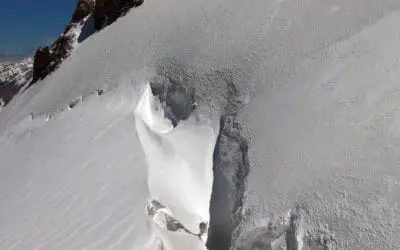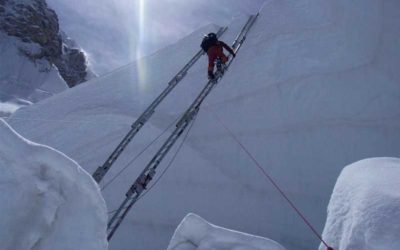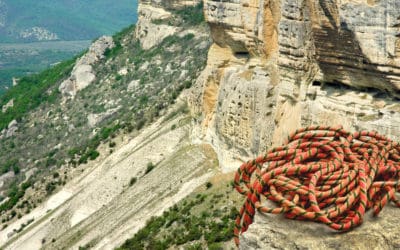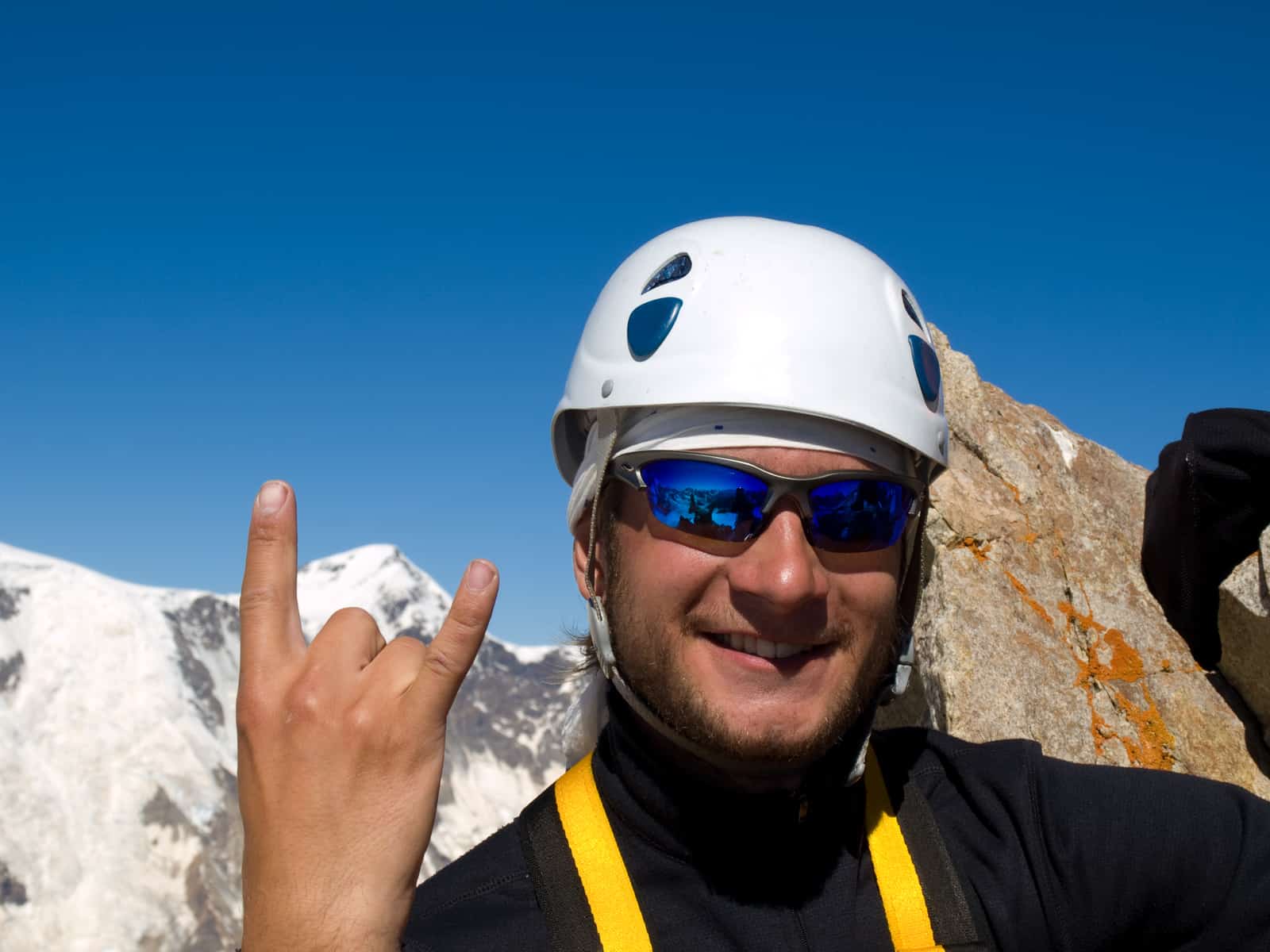
Most people who’ve ever been on a proper trek have probably thought of what it would be like to do this for a living. You know, packing your bag, putting on your shoes and simply heading out to the mountains for a great time. Then, when you get home, there’s a nice paycheck in the mail with a note that you should head out again tomorrow. Living the dream, right?
The primary ways of making money for mountaineers is to work as one of the following:
- Photographer
- Film maker
- Gear rep
- Mountaineering guide/instructor
- PR/Marketing
- Ranger
- Shoe cobbler
- Writer
- Professional mountaineer
Well, some people do climb for a living. It might not look exactly like this dream I just described, though. Getting started as a professional mountaineer isn’t easy. There are a lot of mountaineers out there, and very few that actually get anything out of it other than the awesome feeling of standing at the summit. That’s because this is a hobby, not a profession, and because there isn’t a great demand for professional mountaineers in the first place.
In this article, I will explore how professional mountaineers earn money, how much they earn on average and their working hours. I also check out the experience and training you need in order to do these jobs.
Contents
Paycheck and Hours
Most people working the jobs I list below work around 33 hours a week. That’s crazy little compared to the average 40-50 hour working week most corporates demand.
On the downside, very few of these guys earn more than $30 000 (this stat is from 2012, so things may have changed in the meantime).
I have also written an article about how to become a professional mountaineer. If you are interested in learning more about the qualities that are required you can find my article here.
1. Photographer
Mountaineering photographers get paid to take awesome pictures of people trekking, climbing and chilling in the mountains, along with those incredible scenic shots you find on mountaineering blogs and add campaigns.
Their job doesn’t stop at taking awesome pictures, though. These guys spend hours in front of the computer editing and sorting through everything they captured.
They also have to pitch ideas to clients and compile quotes in order to get the job in the first place. Added to that, they often have to scout locations, transport the climbers there and feed them. Tough job!
Salary
Photographers usually don’t get paid much. There are a few professional mountaineering photographers that earn big bucks, but they’re few and far between. Most outdoor photographers have more than one job in order to pay the bills.
There are lots of photographers who post their work in the internet for free. This devalues the skill and shrinks your potential paycheck, which sucks. Managing the business side of your gig could also be tough, especially if you don’t have a head for business. Hitting some bad weather could also postpone or cancel your awesome shoot.
Pros
You don’t necessarily need a ton of experience to get started. Nowadays, you can get a decent camera and other gear for fairly little, giving you the start you need. You can always upgrade your gear later, once you have a foot in the door.
If you’re a creative soul and love having an outlet for this passion, mountaineering photography might just be the thing to float your boat. You generally get to set your own working hours and you are your own boss, which is great.
Cons
Something you do need that might cost you a bit is a proper computer and post production software. If you can’t edit your pictures properly, you won’t be able to sell them.
Something that you need, that can’t necessarily be taught, is a good eye for photography. Some training will help, but you either have it or you don’t.
Sometimes, you will have to work crazy long hours, though, in order to get the best light. You also have to trek up the mountain carrying both your climbing and photography gear, which can be a real schlep.
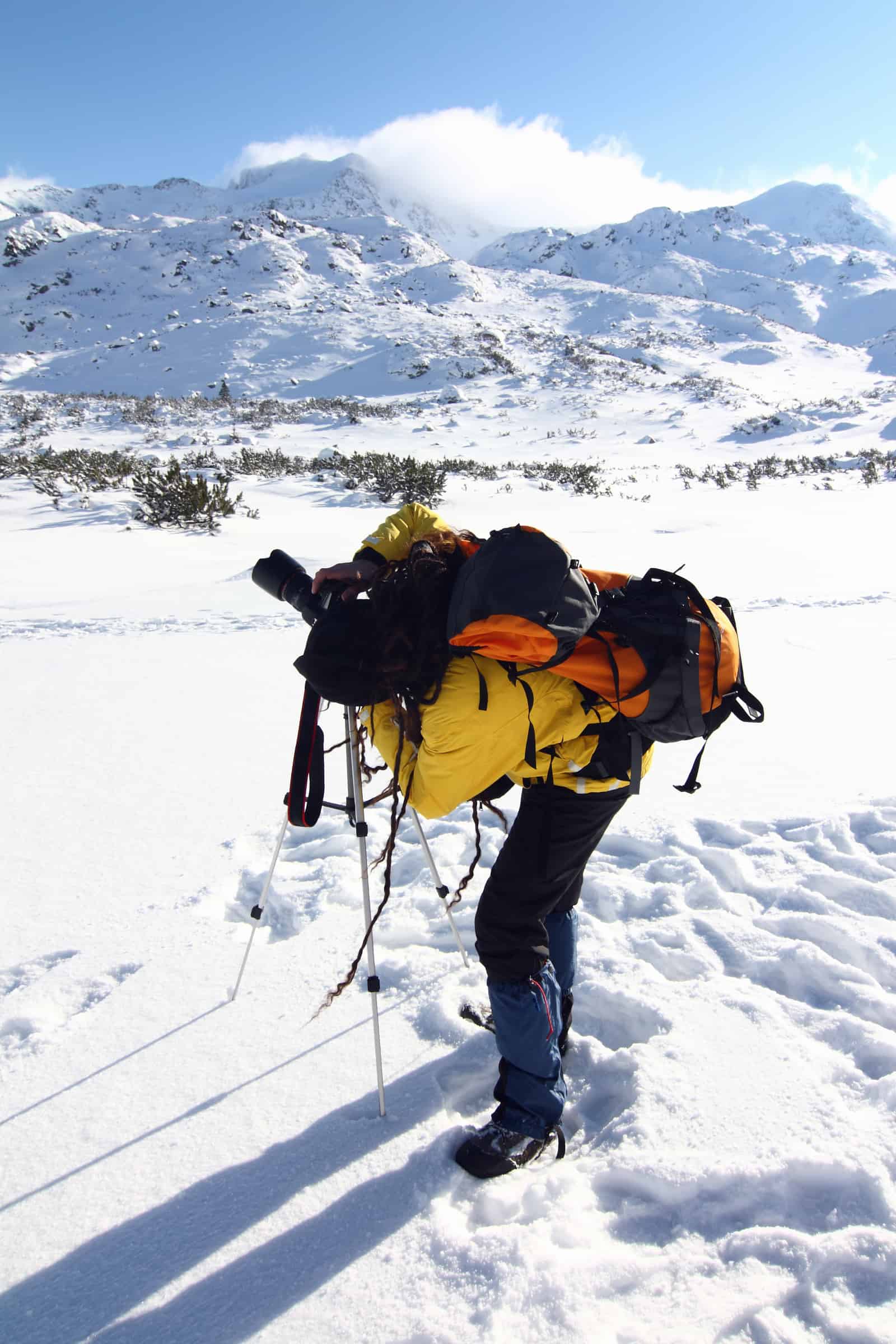
2. Film Maker
This is a big one. Being a mountaineering film maker involves literally everything, from planning, to doing the actual filming, post production work and even sales and distribution.
Salary
The guys that are highly successful and experienced in this field make a ton of money, allowing them to work for only a few months in the year and still earning enough to support them through the rest of the year.
Those that are new to the industry or less successful earn very little and often have to take a second job.
Pros
The cool part of this job is that you’re outside A LOT. And you get to hang with some really cool people. I mean, you don’t film just about any newby doing a trek, now do you? The downside is that you need to still get people to support your films. This is often a tough side of the job and can be very disheartening.
Cons
While on the job, you will probably work crazy long hours, as much as 60 hours per week.
Once filming is done, you have to head back to the office for the long slog of editing everything you filmed. That sounds rough, but most of these guys still have time to climb, so it’s not that bad.
You also need proper training and experience to get started – most outdoor film makers have college degrees. This means that they probably have some student debt to pay off as well.
3. Gear Rep
For this job, you would travel to outdoor shops to sell your products. Think of it as being a travelling salesman.
You get to a shop, where they probably haven’t heard of what you’re trying to sell. So, you have to train the store staff, convince the manager to buy your stuff and find new people to sign accounts with.
You also have to do a lot of admin, such as forecasting sales, researching the competition, analyzing sales data and coordinating equipment demos. Added to this, you would probably have to work at trade shows too.
Salary and Hours
On the upside, these guys tend to earn quite a decent salary, especially those that have more experience.
On the downside, their working hours can be quite long. Many of them work up to 50 hours a week and travel extensively. Keep in mind that travelling for work is generally not that cool.
You also need special training in order to do your job properly – most of these guys have college degrees.
One of the great perks of this job is that you get to visit all the cool gear shops. Since you work for the gear company, you usually get gear at a great discount and sometimes even for free. Bonus!
4. Mountaineering Guide/Instructor
If you like working with people and you want to impart your passion for the hobby to other people, this might just be the job for you.
Salary and Hours
The pay scale for guides varies a heck of a lot. Some earn enough in a few months to last them for the rest of the year, while others have to work all year round to earn a very small wage.
Working hours tend to be long, especially in peak season, where you could work as much as 60 hours per week. While you’re on a trek, you’re obviously constantly on the clock, since you have your clients with you all the time.
Pros
This is a really cool job, since you get paid to do what you would do for free. Nice! The flipside is that you would probably do the same route so many times that you get sick of it.
As a mountaineering guide, you would get to work with people from all walks of life and across many ages, from kids to the elderly, business people, home moms and even soldiers.
You’d also do training in many different environments, usually starting at the gym and ending in some awesome outdoor location. You get to share experiences and work through tough obstacles together, which is really cool and rewarding.
Cons
In order to be a guide, you need proper training and certification. The certification required would depend on the area you’re working in, sometimes, on the terrain you’re planning to cross.
It’s incredibly time consuming and expensive to get this certification. You also have to do such a wide variety of work in a great variety of terrains, ending with you being competent in skiing, avalanche forecasting, climbing, glacier crossing and a whole host of other skills.
You have to be better and far more competent at mountaineering than the people you guide, which is why most guides are actually properly alpinists, not mountaineers.
You also get whiney or miserable clients that could ruin anyone’s week. Working hours are long and often unpredictable, especially if you hit some bad weather.
Remember, if you’re guiding, you’re climbing for someone else’s enjoyment, which is not the same as doing some awesome stuff simply because you love being outside. So, it’s a tradeoff between the awesome part and the sucky part.
5. PR/Marketing
As a PR or marketing person, you’re basically convincing people that your company and their products or services is the bomb and that they should forget about the competition.
You’d have to write catalogs, advertisements and marketing articles and come up with new ideas to sell you wares.
You would probably have to work as a spokesperson at gear demos and trade shows too, and find ways to pitch your stuff in climbing magazines and on climbing blogs. Whatever you write, must be catchy and witty, otherwise people won’t remember it.
Salary and Hours
Of all the climbing professions, this one allows for the largest paycheck. These guys earn nearly double what you would make as a photographer or filmmaker that’s just starting out.
The working hours are hectic though, with most people working over 50 hours a week. They generally don’t have time to climb.
Pros and Cons
In order to do this job, you need special training, which usually involves a college degree.
This job is pretty sweet in that you get to see and try the latest gear before it hits the market and you usually get to work with some pretty cool people. Unfortunately, this is a desk job with quite a bit of business travel, which sucks.
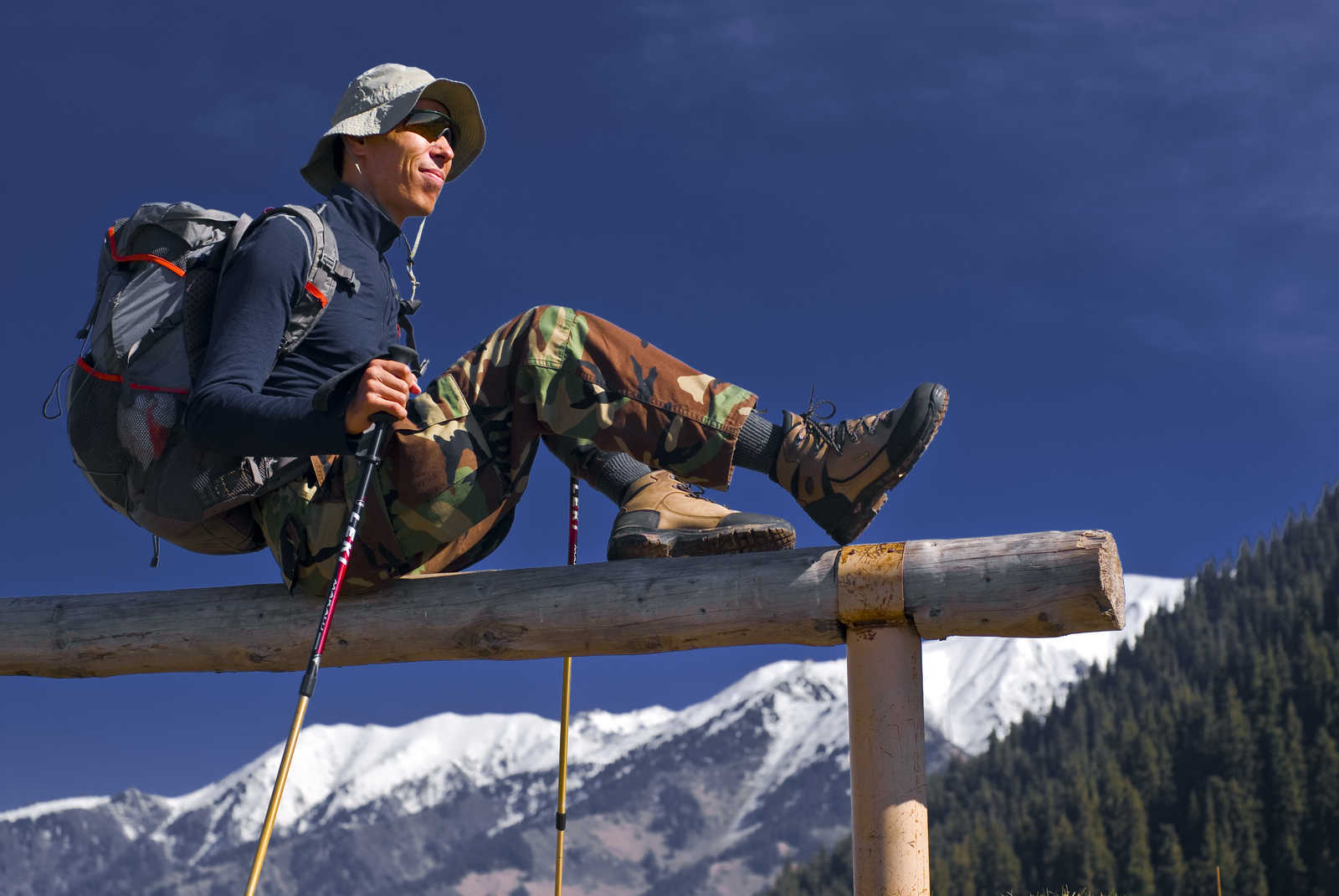
6. Ranger
This one is pretty cool. You get to organize search and rescue missions, maintain and build trails, patrol and generally mingle with the mountaineers coming to your neck of the woods.
Salary and Hours
Working as a ranger is a seasonal job, though and the pay isn’t that high – similar to what you’d earn as a junior photographer.
In season, you would work around 40 hours a week, sometimes more. In the off season, you would have to find another job. You also need special training in order to do this job, but that doesn’t necessarily involve getting a college degree.
Pros
On the upside, you get to be in the mountains literally all the time. It’s your job!
Cons
On the downside, you could get killed or injured. Rescue missions aren’t great either, since it means that someone got seriously injured or killed.
Added to your small paycheck, you have to do tons of paperwork and adhere to a crazy lot of rules. You would also probably be housed in a small, unheated cabin, which sucks in colder regions.
7. Shoe Cobbler
Resoling shoes is a highly skilled profession that’s hard to get into. In order to make it work, you need tons of training and experience.
Salary
Your paycheck is directly linked to the workload, which could mean working anything between 20 and 60 hours per week.
Pros and Cons
The most rewarding part of this job is when people compliment you on your work. On the downside, you work with people’s feet, which are sometimes frostbitten.
You also breathe in glue on a daily basis, so it’s not great for your health.
8. Writer
If you’re good with words, this might just be the gig for you. Writing about outdoor adventures and related topics involves compiling articles that people actually want to read and fact checking them, all in a timely manner. After all, people want to have regular updated or installments of their favorite blogs and magazines.
Salary and Hours
Most writers don’t earn much and have to take on other jobs to make ends meet. Unless, of course, you’re a big shot, writing high profile stuff for all the big names in the industry.
Your hours will also be flexible and probably very little, amounting to a half day job or working every other day.
Pros and Cons
In order to be a successful writer, you probably need some form of formal training, like a college degree. Experience in journalism or literature is also a plus.
If you’re a semi-successful writer, you’ll get published, which is super cool. You also get to tag along on treks, capturing the experience for posterity. Way cool!
The downside is that you pay very little, often work within tight deadlines and have your incredible masterpiece compared to the wares of second rate nonsense posted by amateurs, which sucks. Still, you get to plan your entire life around mountaineering, so you might just be living the dream.
9. Sponsored Mountaineer
This is the sweet spot! If you have world class skills and get noticed by the right people, they will actually pay you to go trekking, not just give you some cool free gear.
You get to be a brand ambassador, do interviews, get your picture taken and sign posters.
Salary and hours
The pay scale varies greatly. If you’ve hit the big time, people will fork out serious money to have your name associated with their brand.
Most sponsored climbers don’t make that much, though. Another downside is that your gig is usually short-lived and that you have no job security. If you receive any bad press, get injured in an accident or if some other newer, better, hotter mountaineer comes along, your sponsors can drop you like a hot potato.
Pros and Cons
The upside of being a sponsored mountaineer is that you actually get paid to do what you love.
Usually, you can pretty much climb when and where you want, for as long as you want, as long as you post some stuff on Instagram about it and mention your sponsors.
Speaking of which, your sponsors will demand that you complete a minimum amount of projects or treks in a set amount of time, since they want to greatest possible publicity from you.
It could become stressful to complete all of this, taking the fun out of what you do.
You also have to carefully curate your social media profile in order to fit in with the image your sponsors want to portray and gather an adequately ginormous following.
Conclusion
If you love mountaineering and would like to structure your life around it, there are quite a few jobs you could do to this end.
Usually, however, the pay is pretty meager and not always reliable, so you would probably have to drop your standard of living and have something to fall back on if things don’t work out.
That said, if things work out in your favor, it’s a pretty sweet deal getting paid to do what you love. Happy adventures!
Written by Felix

About me
Hi! I’m Felix. When I’m not spending time out in the mountains, I like to write about my hobbies. That is how Mountain Homies was created. On this site, I try to gather all the juicy information about Mountaineering that I have learned since I started. Happy adventures!
Related Articles
3 Ways to Spot and Reveal a Crevasse (And Avoid It)
So, how do you spot a crevasse and – more importantly – avoid falling into one? In this article, I will have a look at what crevasses are and how to detect them…
3 Clever Ways of Crossing A Crevasse
When you’re mountaineering in snow country, you will undoubtedly encounter some crevasses. These are scary, since you don’t always spot them…
Mountain Climbing vs Rock Climbing: 5 Biggest Differences
The key differences between rock climbing and mountain climbing are the gear requirements, environmental risk, geographical locations, weather and…
Stay Up to Date With The Latest News & Updates
Join Our Newsletter
The owner of this site is a participant in the Amazon Services LLC Associates Program, an affiliate advertising program designed to provide a means for sites to earn advertising fees by advertising and linking to amazon.com.

